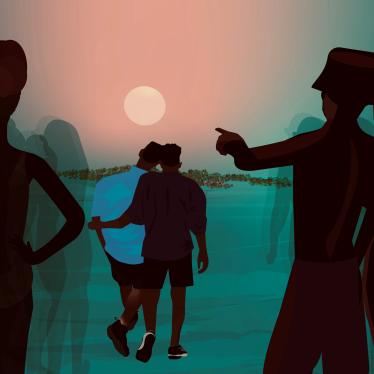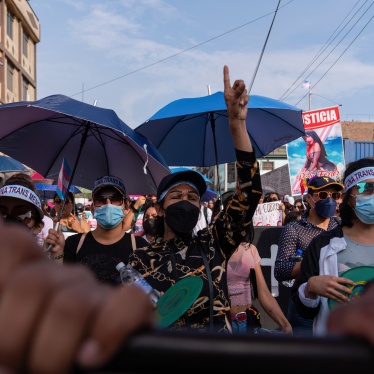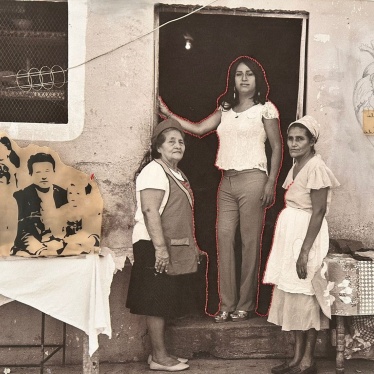A court in Dominica recently became the latest in the Eastern Caribbean to strike down pernicious colonial-era laws that criminalise consensual same-sex conduct between adults. In a disappointing bucking of this regional trend, the High Court of St. Vincent and the Grenadines recently did the opposite, upholding the country’s analogous laws. The High Court’s reasoning, at times unscientific and dubious, represents a stain on the country’s human rights record.
In 2019, two Vincentian men living abroad, challenged the constitutionality of the “buggery” and “gross indecency” provisions of the Criminal Code, which are understood to penalise same-sex intimacy. The men had left their home country due to the draconian and damaging effects of these laws that violate their rights to personal liberty and non-discrimination, freedoms of movement and expression, among others.
The ruling appears to be primarily procedural in nature. The judge dismissed most of the claimants’ arguments because they are Vincentians living abroad who are not within reach of the impugned law or because she found their claims insufficiently substantiated. Yet, the ruling’s formalistic tone belies some troubling substantive arguments, which should alarm all Vincentians.
Responding to arguments about the risks that the criminalisation of same-sex conduct poses to HIV treatment and prevention, the judge’s reasoning is questionable. She wrote: “To my mind, the thought of a public health crisis occasioned by an unstemmed deluge of new HIV is cases is a real and serious concern which reasonably justifies a public health response of the kind embedded in the challenged provisions.”
This argument is flawed in two ways. First, it flies in the face of evidence that decriminalisation opens pathways for vulnerable groups to engage with public health and HIV services thereby facilitating an effective governmental AIDS response. Second, it is widely accepted by law and public health experts that criminalisation drives inequality and impairs any progress toward epidemic control. Such understandings are not only supported by expert international organizations such as UNAIDS, but also by a diverse group of stakeholders in the Caribbean region, including faith leaders.
The interpretation or emphasis that the court gave certain evidence is also questionable. For instance, when analysing whether the “buggery” and “gross indecency” provisions may lead to discrimination based on sexual orientation, the judge writes: “On an objective analysis of the provision, in my view it is clear from the express wording that sexual orientation is not an essential element of the three offences created in it.” Yet, it is difficult to reconcile this finding with the criminal provision that overtly addresses “indecency with another person of the same sex,” not to mention with legal history and regional jurisprudence.
Finding that there is no “culture of homophobia” in St. Vincent and the Grenadines, the judge also accepts a former police officer’s testimony saying, without elaboration, “I prefer his evidence to the claimants [sic] and I believe him.” The officer had asserted that “the members of the Royal Saint Vincent and the Grenadines Police Force (‘RSVGPF’) do not target gay men and further that it is not against the law to be gay.” Both assertions are, at best, highly misleading. Moreover, it is imprudent to rely on the police’s evidence on those points in light of research suggesting that police officers are themselves perpetrators of homophobic discrimination.
Ultimately, the ruling was a missed opportunity to contribute to ending the very real homophobia and transphobia that exist in St. Vincent and the Grenadines today. In 2022, I travelled to St. Vincent and the Grenadines on behalf of Human Rights Watch where I documented the physical and verbal assaults, homelessness, workplace harassment, sexual violence, and bullying that sexual and gender minorities face in the country, including at the hands of RSVGPF officers.
Many interviewees explicitly linked such discrimination to the “buggery” and “gross indecency” provisions of the criminal code. One 25-year-old gay man told us: “People feel they can harass us because of the laws. If people are having an argument, that’s [their] justification for homophobia. They say it’s the laws, that it’s illegal.”
When asked about whether police have been helpful in the face of violent acts committed against her, one 28-year-old lesbian from St. Vincent said: “Nothing would come from going to the police. Because of the laws, same-sex [relations] are illegal. They [the police] would ask, ‘what triggered him?’ ‘Me being gay.’ ‘Okay, then he has the right.’”
The ruling also puts St. Vincent and the Grenadines out of step with its neighbours who are shaking off the legacy of these homophobic colonial-era laws. Between 2022 and 2024, courts in four countries in the region — Antigua and Barbuda, Barbados, Dominica, and Saint Kitts and Nevis — struck down laws that criminalised consensual same-sex conduct. Courts in Belize and Trinidad and Tobago overturned their own versions of these discriminatory laws in 2016 and 2018, respectively.
Under human rights law, matters of sexual orientation and gender identity, including consensual sexual relations, are protected under the right to be free from discrimination, the right to privacy, freedom of expression, among others. Accordingly, international human rights treaty bodies have called on St.Vincent and the Grenadines to the decriminalise consensual same-sex relations in the country.
Prime Minister Ralph Gonsalves and parliament should not wait to see if the High Court’s decision is appealed and urgently act to repeal St. Vincent and the Grenadines discriminatory laws. Gonsalves has previously acknowledged the “history of discrimination against gays and lesbians” and called for a national conversation regarding same-sex relationships. Now is the time for political courage on this idea. A respectful and fair national reckoning will strengthen the country’s democracy and will hopefully create a more equal society.









